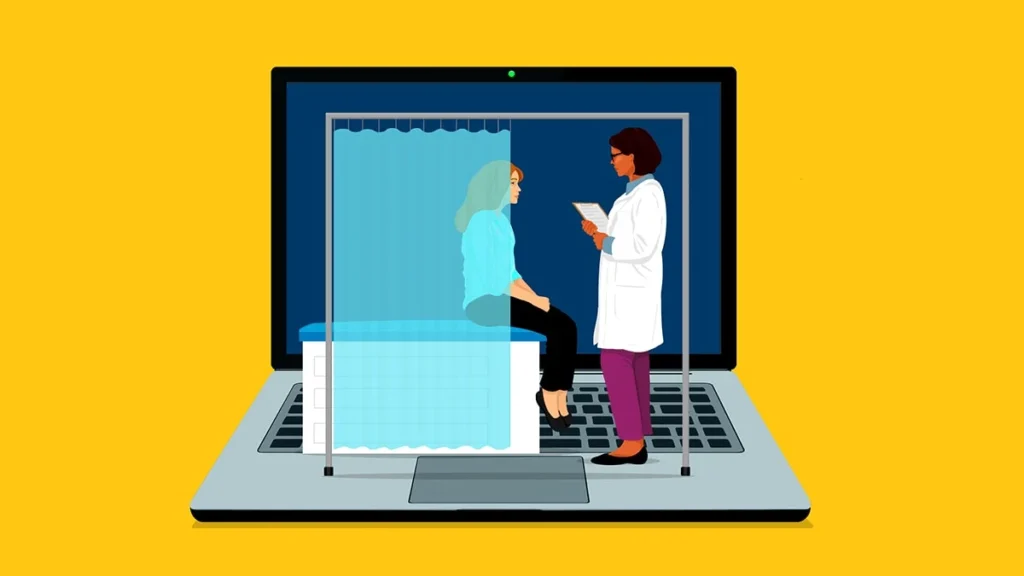Tony Dahbura, Director of ISI, has been quoted in Consumer Reports recent publication on the changing world of virtual reproductive care.
Illustration by: Kiersten Essenpreis
While online telehealth visits surged during the pandemic, consumers now seeking remote reproductive health services face a number of privacy and legal challenges
Understand The Risks of Searches and Conversations About Reproductive Care
“Users need to think of their laptops, phones, digital assistants, home cameras, etc., as open books on their activities,” says Anton Dahbura, PhD, the executive director of the Johns Hopkins University Information Security Institute in Baltimore. “Virtually anything users do or see on their devices can be tracked later, even if the user thinks that they deleted the information.”
That’s particularly important when it comes to online activity about reproductive care, where the laws can be tricky and confusing. “The average person with a smartphone who’s thinking about getting an abortion may Google ‘abortion near me’ or ‘where’s Planned Parenthood,’ or they may direct-message someone on Facebook or Instagram,” says Ziegler, professor of law at the University of California, Davis. Though common, that sort of activity is generally not private.
Abortion-related prosecutions that rely on internet search data have happened in at least one instance, when Latice Fisher, a Mississippi woman, was indicted for murder in 2018 after losing a pregnancy. “The inclusion of Ms. Fisher’s alleged internet search history related to her reproductive health as evidence of criminal intent will become standard protocol across the country once abortion is again criminalized,” Cynthia Conti-Cook, a tech fellow at the Ford Foundation, wrote in a 2020 paper published in the University of Baltimore Law Review.
If someone is texting, emailing, or calling their medical provider about any medical care, they may want to use separate applications for these communications rather than their regular email account, their phone’s built-in messaging app, and call service. A provider may be willing to converse via an encrypted app, such as Signal, for example. You can also use Signal to chat with friends or family, but “you still need to trust the person on the other end,” Brookman says. He also recommends selecting the option to automatically delete all messages after a certain period.
Some telehealth abortion providers, including Choix and Hey Jane, let patients request communication via encrypted messaging.


